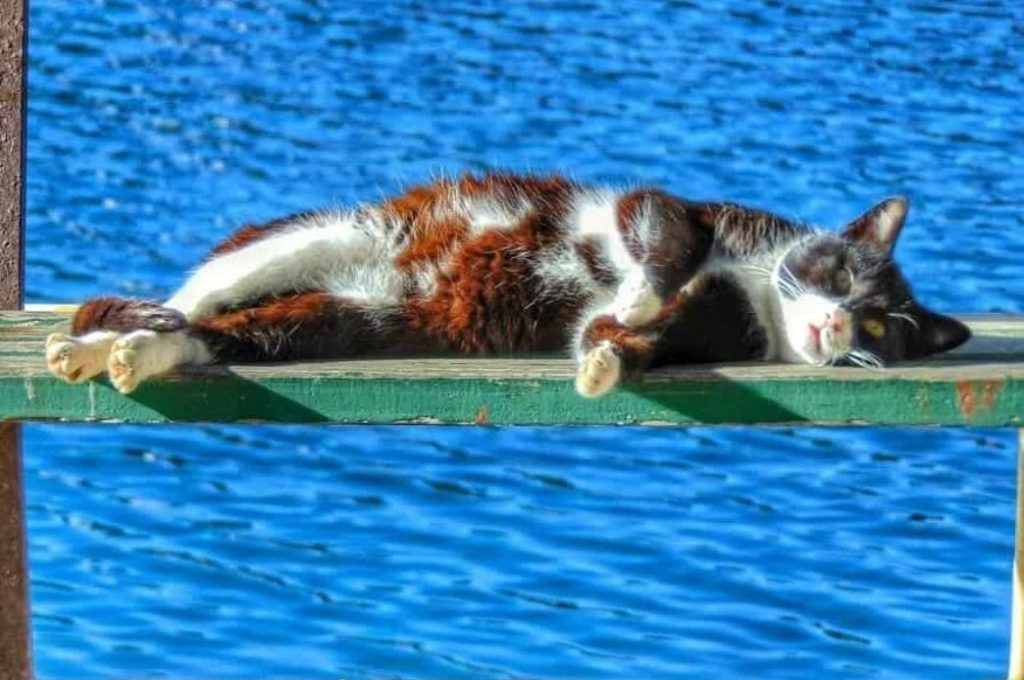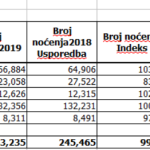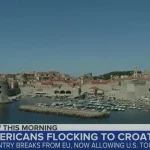“I was in an olive grove with a group of rich New York clients,” he explained. “Olive tasting, peka lunch, the standard. One of the guests came over to me and motioned to a lemon tree and its abundant fruit nearby. He asked if it would be ok to pick one. Pick ten, I replied, and off he went. At the end of the week, he came up to me to thank me for an incredible week, but he just wanted me to know what the highlight had been for him.”
“Picking those lemons,” he said. “I grew up in New York and have only seen lemons in a store or on a dinner plate. To pick one as nature intended was just wow.”
The secret of quality tourism, my friend concluded, was understanding the things we take for granted but that have a high value for others, and then putting the two together.
A lot of lemons have been picked for tidy sums over the last 10 years on Hvar. A fair exchange for the authentic experience.
Growing up on Hvar, there is no reason to think that picking a lemon from a tree could be an exceptional experience for someone else. It is human nature for people to take their surroundings for granted and to assume that others are aware of them too. But I have always found that listening to visitors and tourists helps to show where the gaps in knowledge and understanding are. And if we are aware of those gaps and can address them, then there is benefit all round.
It is natural for people in Croatia to assume that tourists coming to visit know where Croatia is on the map, but many really have no clue. After the World Cup heroics of 2018 in Russia, ‘Where is Croatia’ was one of the most-searched terms out there. People knew that it was over ‘in eastern Europe’ somewhere, but many could not pin it on the map.
Croatia’s geography has been looming large in Google Search again recently, with one of the most-searched terms finding TCN in recent weeks – Is Croatia near Ukraine?
The reality is that what was the former socialist bloc in Central and Eastern Europe still confuses many in the West, and a bit more clarity on Croatia’s geographical position would be useful, plugging one of those gaps in knowledge by potential tourists and assumed knowledge by locals.
I decided to write an article on the subject earlier this month – Is Croatia Near Ukraine? Some Answers to Tourist Google Searches. It was one of the most popular of the year so far. So how to plug that information gap? A simple message, reinforced often, to pinpoint Croatia’s Central European location, could be done with a combination of these two facts:
Croatia, just 25 km from Italy, and with a capital city which lies west of Vienna.
The assumption that Croatia is somewhere vague in eastern Europe is gone, as is the tantalising prospect of adding it to western European itineraries.
This article was prompted by a phone call from Croatian television last week, inviting me to appear on the national evening news to comment on a new campaign from the Croatian National Tourist Board, in particular its new slogan, Croatia – Your life, Your time, Your experience. The accompanying byline on the official YouTube channel is Our Life is defined by the memories we create, and our life goal should be to indulge ourselves and the people around us.
I politely declined the invitation, given that I currently have two ongoing lawsuits from the Croatian National Tourist Board (new episode coming soon, but you can catch up on the first two years in Diary of a Croatian Lawsuit), including one for satirical comment on their slogan.
A little like the current Croatia, Full of Life, I am not sure how this new slogan applies to Croatia or showcases its USP or strengths and attributes. You could replace the word Croatia for pretty much any country on the planet and they would come up with a version of the same thing.
I thought back to the episode of the lemon tree. What were the things that we take for granted here that surprise and impress our visitors?
I have spoken to a LOT of tourists, digital nomads, and expats over the years here. They all have their reasons for visiting – and staying in some cases – but there are a number of factors which are key to them, several of which are a surprise, as they were not aware of them before they visited. And a little like the lemon tree example, if we can listen and plug those information gaps, the brand of Croatia and what it really offers will be all the stronger. And the good news is that, unlike Full of Life and Your Life, Your Time, Your Experiences, they cannot be applied everywhere. They include:
Safety. Croatia is one of the safest countries in the world. I am not talking about COVID-safe (or any associated campaigns claiming that with one of the lowest vaccination rates in the EU), but safety from a security perspective. I have met so many expats and diaspora who are here because it is a safe place to bring up families. My own personal experience raising two little ones on Hvar was magical. Many are stunned at the safety at night in the big cities, where young women walk home alone and unhindered. In an increasingly uncertain world, the safety of Croatia compared to other countries, is a great marketing tool, especially when coupled with everything else on offer.
Lifestyle. Croatia really does have about the best lifestyle in Europe, and there is a lot more to it than 2-hour coffees on the riva. As more people are going down the remote work route, lifestyle is one of the key factors in choosing a destination. Imagine how popular a beautiful destination which had the best lifestyle and was one of the safest places in Europe might be. I am not a fan of the Croatia, Full of Life slogan, but one of its advantages is its flexible usage – Croatia, Full of Culture, Croatia, Full of Wine etc. And yet – according to Google – Croatia, Full of Lifestyle has never been used. Until this article. It could and should be a cornerstone of Croatia’s message to the world.
Croats speak excellent English. This was a real surprise to me, but I have lost count of the number of visitors who have been stunned by the level of spoken English in Croatia (I just assumed people knew). Croats speak English as well as any country I have lived in (and significantly better than in Newcastle and Glasgow…), and much better than other tourism competitors, according to the many tourists I have talked to about this. Knowing that there is no language barrier to overcome is a definite factor in destination decision-making, particularly for those looking to stay a bit longer.
The WiFi is great. This is more regarding feedback from digital nomads, but many have expressed surprise at how good the WiFi is in general in Croatia. Of course, there are more remote places where it is patchy, but the knowledge that getting online is not going to be an issue is reassuring.
Authentic experiences. It feels like the West as it once was, with so many local traditions and authentic experiences. I hear a version of this sentence a lot. For the very simple reason that it is true. Croatia is arguably the authentic experience capital of Europe, with something happening 365 days a year, all over the country. I have never experienced so many weird and wonderful festivals and traditions elsewhere in the world as I have in Croatia, one of the reasons we are creating our new CROMADS platform. In an increasingly standardised world, destinations known for authentic experiences will become more attractive.
How about a message of Croatia, Your Safe, Authentic, Lifestyle Destination, with a byline including English spoken, fast WiFi, just 25 km from Italy sound?
Read more: 10 Things Croatia Does Better than Anywhere Else












